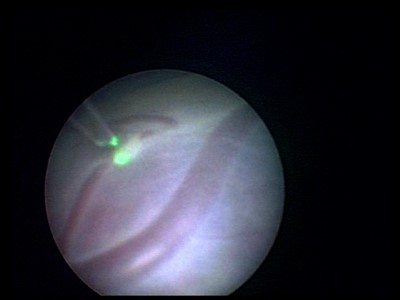What is Fetal Therapy?
Fetal treatment (or fetal therapy) is the “operative branch” of fetal medicine. It includes a series of interventions performed on the “sick” fetus with the aim of achieving fetal well being. These interventions include medical (i.e. non-invasive) and surgical procedures. In general a medical intervention is performed by administering medication to the mother. The drug crosses through the placenta and reaches the blood circulation of the fetus.
An example of medical intervention is a fetus who is diagnosed with arrhythmia, such as atrial flutter. This condition may result in hydrops, and if no intervention is performed the fetus may die. In this case, medication may be administered to the mother to treat the fetal arrhythmia.
Surgical intervention on the fetus may involve either a direct operation of the fetus, as with in utero correction of spina bifida (see also the MOMS trial) or an intervention on the placenta, as in the case of twin-twin-transfusion syndrome. In some cases, it may be performed at the time of delivery: the Ex Utero-Intrapartum (“EXIT”) procedure. These interventions are often complex, and are only performed when the prognosis suggests the fetus may either not survive or be severely handicapped without prenatal intervention.
Fetal treatment, and advanced fetal therapy in particular, is a relatively new field in medicine. Because of its complex nature and the significant risks involved with a surgical or medical intervention on a pregnant woman and her fetus, these procedures are usually performed in specialized centers and involve a multidisciplinary team of specialists. In addition, most of these fetal conditions are relatively rare, and the methods used to diagnose them are becoming increasingly sophisticated. Finally, there remain a lot to learn about the natural history of some of these disorders and the safest way to treat them.
It is for all these reasons that the North American Fetal Therapy Network (NAFTNet) was established. NAFTNet’s goals are sharing of knowledge regarding complex fetal disorders, promoting research into these conditions and facilitating access to diagnosis and treatment, both for pregnant couples and their physicians.
It is important to note, however, that there are fetal treatment centers in North America that are not part of NAFTNet.
 |
 |
| Laser surgery on the vessels of the placenta to treat twin-to-twin transfusion syndrome. |
Ex Utero-Intrapartum (“EXIT”) procedure for a fetus/newborn with airway obstruction. |